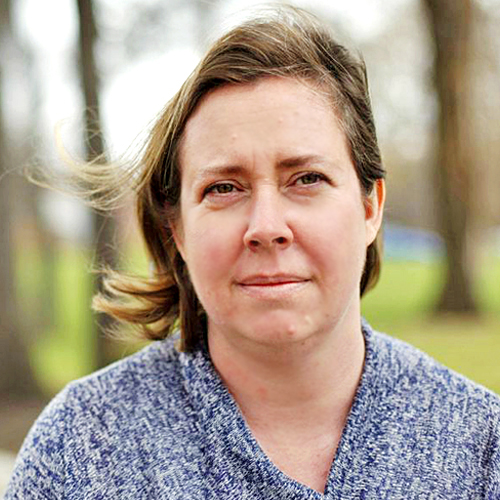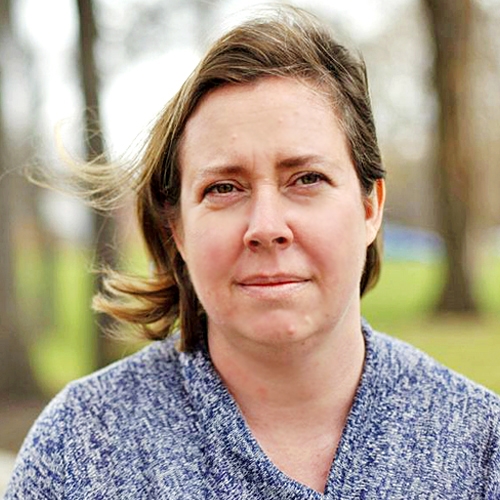
Watching Our Words: Is Risk-Based Language Always the Right Choice?
This lecture was originally offered as part of the GOLD Lactation Alumni Presentations 2019 Package.
Within the lactation world, it is widely accepted that optimizing infant feeding practices and normalize breastfeeding, we must frame breastfeeding as the physiological norm and not breastfeeding as the risk behaviour. For example, breastfeeding does not reduce the risk of type II diabetes, but rather not breastfeeding increases the risk of type II diabetes. Most of us have had this framing drilled into us during our training and can deftly turn around any headline to reflect the correct wording.
It is, indeed, scientifically correct that breastfeeding is the physiological norm for human: artificial feeding is no more "normal" for the human baby than using a wheelchair to be mobile. However, health communication is about more than delivering scientifically accurate facts to the target population. In motivating parents to initiate breastfeeding and then maintain exclusive breastfeeding for 6 months and alongside complementary foods for at least 2 years and beyond, the science of health behaviour is often overlooked.
In this session, we will discuss some of the major models of health behaviour change and how risk is perceived and acted up on within these models, drawing from both maternal-child health and other public health. We will review the rationale for using risk-based language as well as the evidence for different perspectives, including the use of social marketing strategies.


Michelle Pensa Branco MPH IBCLC is a lactation consultant and public health advocate. In addition to her clinical practice, which has included in-hospital, outpatient and private practice settings, she advocates for improved maternal-child health practices at the local, national and global level. She has a particular interest in the impact of trauma to breastfeeding families, models of peer support to improve breastfeeding outcomes and the application of health communication principles to the promotion and protection of breastfeeding. Michelle serves as the Director of Peer Support Programs and provides clinical lactation expertise for Nurture Project International, the only international NGO focused exclusively on infant feeding in emergencies. With Jodine Chase, she co-founded a Canadian non-profit organization, SafelyFed Canada. She is also an active member of the Ontario Public Health Association’s Breastfeeding Promotion Working Group. Michelle has previously served as the Vice-Chair of La Leche League Canada, the Communications Director for the Canadian Lactation Consultants Association as well as the Toronto Coordinator of INFACT Canada. When she is not travelling for work, Michelle stays close to home, living with her family just outside Toronto, Ontario, Canada.
Topic: Keeping the Fox Out of the Chicken Coop: Safeguarding Your Reputation Against Baby Feeding Industry Influence - [View Abstract]
Topic: Playing Well with Others: Collaborating in High Conflict/Low Trust Settings - [View Abstract]
Topic: Watching Our Words: Is Risk-Based Language Always the Right Choice? - [View Abstract]
Objective 1: Explain the difference between risk and hazard;
Objective 2: Provide an example of where “risk” is an effective motivator;and
Objective 3: Describe what is meant by “intention-behaviour gap”.
Within the lactation world, it is widely accepted that optimizing infant feeding practices and normalize breastfeeding, we must frame breastfeeding as the physiological norm and not breastfeeding as the risk behaviour. For example, breastfeeding does not reduce the risk of type II diabetes, but rather not breastfeeding increases the risk of type II diabetes. Most of us have had this framing drilled into us during our training and can deftly turn around any headline to reflect the correct wording.
It is, indeed, scientifically correct that breastfeeding is the physiological norm for human: artificial feeding is no more “normal” for the human baby than using a wheelchair to be mobile. However, health communication is about more than delivering scientifically accurate facts to the target population. In motivating parents to initiate breastfeeding and then maintain exclusive breastfeeding for 6 months and alongside complementary foods for at least 2 years and beyond, the science of health behaviour is often overlooked.
In this session, we will discuss some of the major models of health behaviour change and how risk is perceived and acted up on within these models, drawing from both maternal-child health and other public health. We will review the rationale for using risk-based language as well as the evidence for different perspectives, including the use of social marketing strategies.
Accreditation
CERPs - Continuing Education Recognition Points GOLD Conferences has been designated as a Long Term Provider of CERPs by the IBLCE--Approval #CLT114-07. This program is approved for 1 CERP (1 L-CERP).
If you have already participated in this program, you are not eligible to receive additional credits for viewing it again. Please email us at [email protected] if you have any questions.
Tags / Categories
(IBCLC) Education and Communication, Breastfeeding Education
How much time do I have to view the presentations?
- The viewing time will be specified for each product. When you purchase multiple items in your cart, the viewing time becomes CUMULATIVE. Ex. Lecture 1= 2 weeks and Lecture Pack 2 = 4 Weeks, you will have a total of 6 weeks viewing time for ALL the presentations made in that purchase.
- Time for viewing the talks begins once you purchase the product. For Live Webinars & Symposiums, the viewing period begins from when the live event takes place. Presentations can be accessed 24/7 and can be viewed as many times as you like during the viewing period.
What are bundled lectures?
- Presentations may be available individually or via a bundled package. Bundled lectures are a set of lectures that have been put together based on a specific category or topic. Some lectures will be available in both individual and lecture form, whereas others will be available only via a bundled lecture pack.
Will there be Handouts?
- YES! Each lecture comes with a PDF handout provided by the Speaker.
Some lectures include a Q&A, what does that mean?
- During our online conferences, presentations that occur live are also followed by a short 15 minute Question & Answer Session. The Speaker addresses questions that were posted by Delegates during the presentation. We include the recording of these Q&A Sessions as a bonus for you.
How can I receive a Certificate?
- If this presentation offers a certificate, once you are done viewing the lecture or the lectures within a bundle, submit your attendance record in order to be able to download your certificate. You'll be able to see which credits are offered for the lecture by hovering over the "Credits Available" link within the "Speakers & Topics" tab.
Professionals that selected this package also viewed

|
|

|







